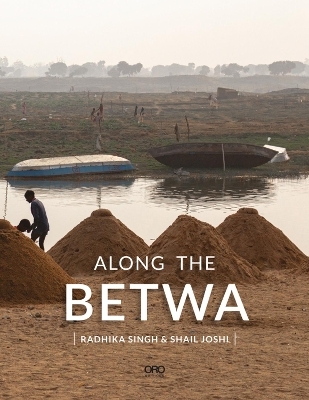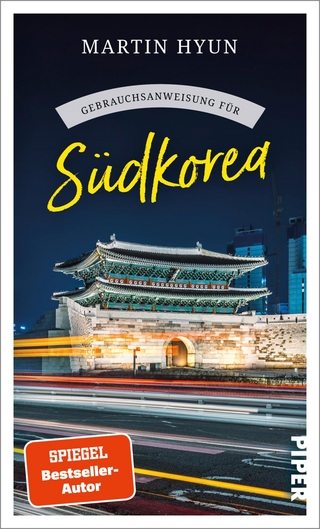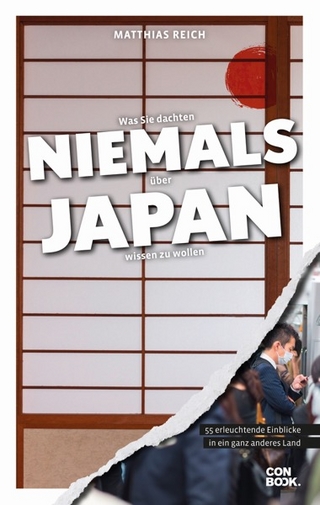
Along the Betwa
A Riverwalk through the Drought-Prone Region of Bundelkhand, India
Seiten
2021
Oro Editions (Verlag)
978-1-951541-94-1 (ISBN)
Oro Editions (Verlag)
978-1-951541-94-1 (ISBN)
Along the Betwa documents the lives of people living in the drought-prone region of Bundelkhand, touching upon themes related to water scarcity, climate change, agrarian distress, and caste and gender inequalities.
The region of Bundelkhand in India faces enormous challenges in development. With a population of 18 million people, it has one of the lowest human development indices in India. Groundwater, which the vast majority of people rely on for domestic and agricultural purposes, is being rapidly depleted, while droughts have become more frequent and severe.
In Along the Betwa, Shail Joshi and Radhika Singh, in partnership with Veditum Foundation and Out of Eden (National Geographic), embark on river walk through Bundelkhand. By living with families and visiting villages across the region, the authors learn about the complex interplay of factors that have shaped the region to make it what it is today.
During their walk, the authors speak with men, women, and children that are employed in a range of sectors - agriculture, herding, fishing, and even sand mining - to understand how the degradation of natural resources has affected their livelihoods. They also learn about the impacts of climate change, which has led to more variable rainfalls and disasters of higher intensities, and how it has exacerbated factors such as debt, inequality and migration. Government interventions in the region are the subject of much controversy, and the authors play close attention to the complexity and range of opinions on health, education, livelihoods, and religion and the role people believe the public sector should play.
In Along the Betwa, the authors shed light on the experiences, fears, opinions, and hopes of people living in Bundelkhand. They bring together photography, interviews, and research to weave a narrative that contributes to a better understanding of the region. Throughout the book, the authors are careful to address their own positionality. Rather than presenting an “objective” account of the region, the authors are explicit about their own background, beliefs and feelings. By doing so, Radhika Singh and Shail Joshi present an honest and insightful look into the situation in Bundelkhand and hope that it will help inform the conversation of development in India.
The region of Bundelkhand in India faces enormous challenges in development. With a population of 18 million people, it has one of the lowest human development indices in India. Groundwater, which the vast majority of people rely on for domestic and agricultural purposes, is being rapidly depleted, while droughts have become more frequent and severe.
In Along the Betwa, Shail Joshi and Radhika Singh, in partnership with Veditum Foundation and Out of Eden (National Geographic), embark on river walk through Bundelkhand. By living with families and visiting villages across the region, the authors learn about the complex interplay of factors that have shaped the region to make it what it is today.
During their walk, the authors speak with men, women, and children that are employed in a range of sectors - agriculture, herding, fishing, and even sand mining - to understand how the degradation of natural resources has affected their livelihoods. They also learn about the impacts of climate change, which has led to more variable rainfalls and disasters of higher intensities, and how it has exacerbated factors such as debt, inequality and migration. Government interventions in the region are the subject of much controversy, and the authors play close attention to the complexity and range of opinions on health, education, livelihoods, and religion and the role people believe the public sector should play.
In Along the Betwa, the authors shed light on the experiences, fears, opinions, and hopes of people living in Bundelkhand. They bring together photography, interviews, and research to weave a narrative that contributes to a better understanding of the region. Throughout the book, the authors are careful to address their own positionality. Rather than presenting an “objective” account of the region, the authors are explicit about their own background, beliefs and feelings. By doing so, Radhika Singh and Shail Joshi present an honest and insightful look into the situation in Bundelkhand and hope that it will help inform the conversation of development in India.
Radhika Singh previously worked as a correspondent for the Indian Express in Mumbai and as a project manager at the research-advocacy organisation INHAF in Ahmedabad. She is currently based in Nairobi, where she works on issues related to agriculture. Shail Joshi is a design architect by training and a published photographer. He has worked across the Global South on issues pertaining to marginalised communities. He currently works as an associate at a non-profit based in New York City. Both Singh and Joshi are graduates of MIT.
| Erscheinungsdatum | 14.02.2022 |
|---|---|
| Verlagsort | San Rafael |
| Sprache | englisch |
| Maße | 172 x 224 mm |
| Gewicht | 458 g |
| Themenwelt | Kunst / Musik / Theater ► Fotokunst |
| Reisen ► Bildbände | |
| Reisen ► Reiseberichte ► Asien | |
| ISBN-10 | 1-951541-94-4 / 1951541944 |
| ISBN-13 | 978-1-951541-94-1 / 9781951541941 |
| Zustand | Neuware |
| Haben Sie eine Frage zum Produkt? |
Mehr entdecken
aus dem Bereich
aus dem Bereich
Buch | Softcover (2024)
Conbook Medien (Verlag)
CHF 15,90


